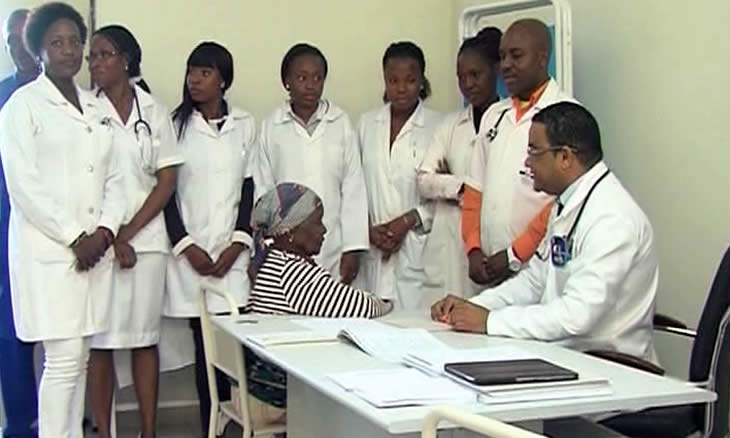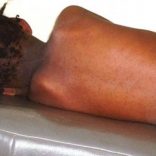Mozambique: 11th grader Faifé overcomes power outages with lemon and onion in Ribáué
Mozambique; Haemophiliacs ask for priority care in health units

Photo: O País
There are 1,900 haemophilia sufferers in Mozambique, of whom just 40 are being assisted by Maputo Central Hospital, the only unit with the capacity to treat the disease in the country.
Hemophilia causes patients to bleed more than normal when cut, because of a lack of the proteins responsible for the growth and development of all tissues in the body.
At World Haemophilia Day celebrations – celebrated this year under the motto “Reaching Out: The First Step to Care” – the 40-strong Mozambican Haemophiliac Association called on the authorities to provide peer support and priority attention in hospitals.
Ten-year-old António Mondlane is one of the 40. Since 2016, when he discovered that he suffered from the disorder, his life has not been the same. His mother says he suffers discrimination in school and on public transport.
Maputo Hospital haemophilia specialist Nélia Manguel says that the disorder is transmitted through the maternal line but affects mainly men, and that the number of people with haemophilia in the country may be much higher than the published figures.
By Isabel Manhiça
Past #eahad president Philippe de Moerloose is presenting the situation of haemophilia in Africa, with eye-opening data during this year’s #arosenius lecture. #EAHAD2019 #haemophilia #hemophilia #Africa pic.twitter.com/b8uq7iNYxo
— EAHAD (@EAHADnews) February 8, 2019
We’re launching our first-ever #video series for 2019 to coincide with our core focus on supporting & upskilling #youngpeople living with #haemophilia to self-manage more effectively. Watch the announcement of #TheCultureShift in full here ➡️ https://t.co/uB9zi8ZbqE #hemophilia pic.twitter.com/q67oLYPlOU
— On The Pulse (@PulseInSync) November 9, 2018
World Haemophilia Day 2019
OUTREACH AND IDENTIFICATIONApril 17, 2019 will mark the 29th World Haemophilia Day! Haemophilia is a rare condition in which the blood does not clot properly. It mostly affects men. People with haemophilia lack a… https://t.co/EreFXF8iB2
— Genetic Alliance SA (@GenAllianceSA) April 17, 2019












Leave a Reply
Be the First to Comment!
You must be logged in to post a comment.
You must be logged in to post a comment.